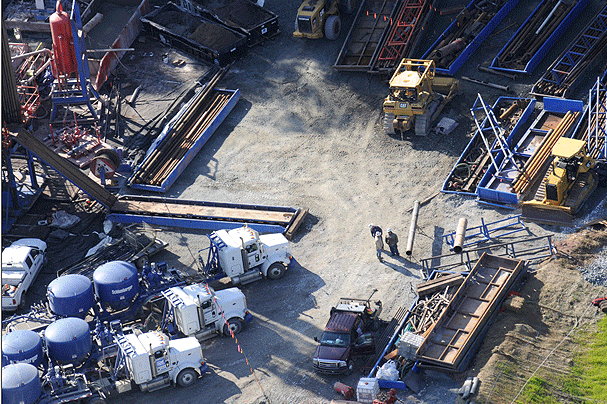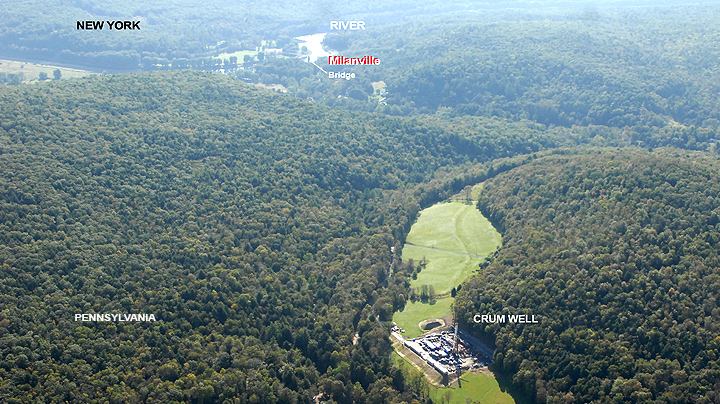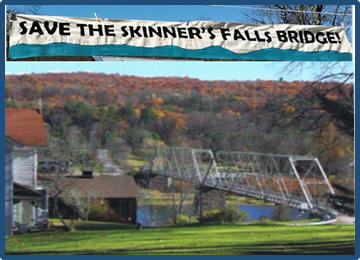Impact on Housing in Appalachian Pennsylvania as a Result of Marcellus Shale
November 23, 2011Feds link water contamination to fracking for the first time
December 8, 2011The expert reports listed below were prepared (by DCS, DRN and the DRBC) for an administrative hearing (like a trial) that was to take place in January, 2011. The hearing was cancelled at the December, 2010 DRBC meeting when the drilling companies, recognizing the power of the reports, decided to offer a settlement to the DRBC: if the DRBC would cancel the hearing, the drilling companies would cancel most of their ‘test’ well plans (except for about 4 that were already permitted). They had previously said that there could be ‘thousands’ of these ‘test’ wells in the Basin. The DRBC accepted their offer.
Delaware RiverKeeper Network (DRN), and Damascus Citizens for Sustainability (DCS) were co-appellants in a Consolidated Administrative Hearing before a Delaware River Basin Commission [DRBC] Judge.
The following reports were submitted in this hearing and their sworn testimony will forever change the debate. These reports have established a record for all to use.
Cover Letter to DRBC Regarding Expert Reports [PDF]:
Expert-Reports_Cover-Letter_R1.pdf
List of Experts and Full Report [PDF files]:
1. Michele C. Adams: Adams-Report_R1.pdf
2. Ronald E. Bishop: Bishop-Report_R1.pdf
3. Peter M. Demicco: Demicco-Report_R1.pdf
4. Susan L. Harvey: Harvey-Report_R1.pdf
5. Glenn C. Miller: Miller-Report_R1.pdf
6. Emmet M. Owens: Owens-Report_R1.pdf
7. Paul A. Rubin: Rubin-Report_R1.pdf
8. Daniel T. Teitelbaum: Teitelbaum-Report_R1.pdf
List of DRBC Reports [PDF files]:
1. Robert M. Anderson: Anderson-Kreeger-DRBC-Report-112310.pdf
2. Patrick M. O’Dell: ODell-Report-DRBC-112310.pdf
3. Erik Silldorff: Silldorff-Report-DRBC-112310.pdf
4. Bernard W. Sweeney: Sweeney-Jackson-Report-DRBC-112310.pdf
5. Conrad Daniel Volz: Volz-Report-DRBC-112310.pdf
 Pictured above are several photos of the wells now being drilled within the watershed.
Pictured above are several photos of the wells now being drilled within the watershed.
Focus of the Experts:
• Oil & Gas Industry … Drilling practices including well-construction policy and safety
• Chemicals … Chemical makeup of flowback water, muds, etc. and how they move
• Geology, Hydro-geology … Groundwater geologic impacts from drilling, pathways to aquifer/surface, watershed hydraulic analysis
• Runoff … Stormwater and nonpoint source pollution, pollution of surface water bodies, river and stream impacts
• Biochemistry … Water, air, wildlife, and health impacts
• Oil & Gas Industry … Business aspects and practices
Our Goal in this Hearing is to Address our Objection to DRBC Decisions…
• Excluding certain wells within the Delaware Basin and Watershed Region from DRBC review of exploratory wells.
The Hearing will Address the Validity of Actions by the DRBC Regarding…
• Decision to NOT REVIEW ALL WELLS within Watershed Basin – including so-called “test wells.”
The Hearing will begin January 19, 2011, before Hearing Officer
Edward N. Cahn, a retired U.S. District Court Judge appointed by DRBC.
Delaware RiverKeeper Network (DRN), Damascus Citizens for Sustainability (DCS) have each paid $4,895 to the Delaware River Basin Commission (DRBC) for a hearing to stop the wells now being drilled in the watershed region.
That’s a total of $13,794 paid by ordinary people. And that’s just the beginning of the financial burden we must all bear to protect our community.
The hearing will take place at the Court House in Easton, PA. Judge Cahn will make a report and recommendation to DRBC as to the validity of DRBC’s decisions outlined above.
Both DRN and DCS seek to support DRBC’s regulation of exploratory wells and to overturn DRBC’s exemption of certain state-permitted wells which are proceeding without DRBC supervision as allowed “exploratory wells.”
These “exploratory” gas wells are essentially vertical gas wells going through the Marcellus layer into the Onondaga layer, which in this area is just below the Marcellus. In the drilling undisclosed chemicals are used, there is potential for spills of these chemicals and fuels; there is truck traffic and de-forestation, drill cutting pits, wastewater, etc. These wells are not going to be hydraulically fractured in this phase of activity. They will have to obtain separate permits for fracturing after the DRBC regulations are formulated and adopted. This has not happened yet.
SEE MANY MORE HIGH-QUALITY DIGITAL STILL PHOTOGRAPHS
Flight support donated by LightHawk
COPYRIGHT • LIGHTHAWK
Photographer …Ted Waddell






